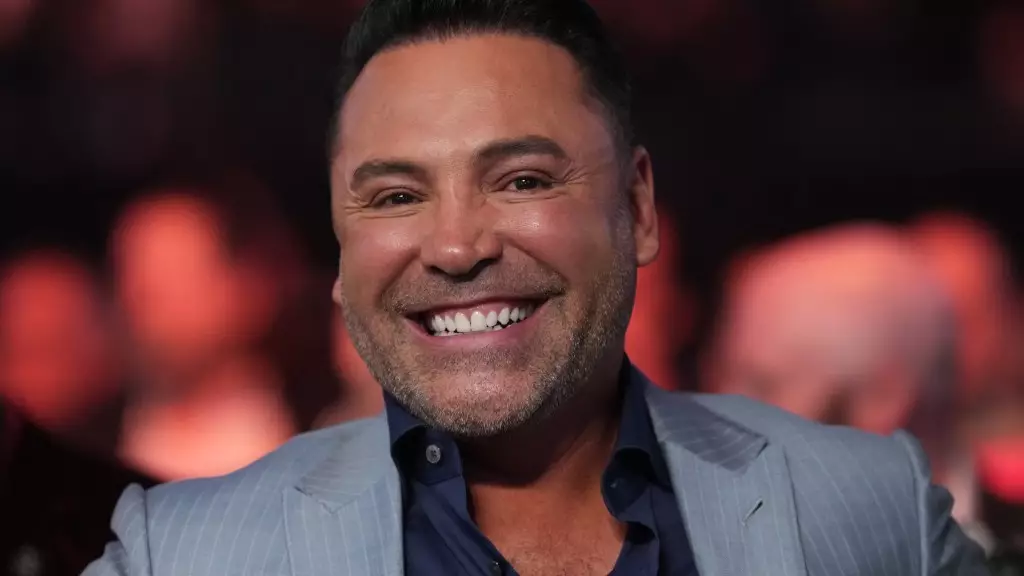In the world of combat sports, rivalries often define athletes and promoters alike. Oscar De La Hoya, once a golden boy of boxing, has had a long-standing contentious relationship with UFC president Dana White. Despite this historical friction, De La Hoya’s recent appearance at the highly publicized UFC 306 event in Las Vegas has sparked conversations about respect and appreciation across competitive lines.
Held at Sphere, UFC 306, dubbed Noche UFC, was a celebration of Mexican heritage through the exciting lens of mixed martial arts. The event garnered significant attention, not merely due to the fights themselves but also because of the star-studded attendance. Among the distinguished guests was De La Hoya, who watched the action from the exclusive box of Turki Alalshikh, a prominent adviser orchestrating the Riyadh Season. The presence of mega-personalities at such a vibrant event added layers to the unfolding narrative, transcending the customary confines of rivalry.
In an unexpected twist, De La Hoya took to Instagram to share his thoughts on the production quality and overall atmosphere of the event. His remarks were a blend of genuine admiration and familiar jabs at his arch-rival. “The production value was there. Everything was amazing,” he stated, highlighting not just the spectacles of the night but also the meticulous effort behind them. However, he didn’t shy away from delivering pointed criticism directed at White, emphasizing a belief that the UFC’s success is due to collective effort rather than White’s vision alone.
This layered sentiment embodies the complexity of relationships in sports, where admiration can coexist alongside rivalry. De La Hoya’s recognition of the event’s quality was a subtle acknowledgment of the UFC’s often unparalleled production capabilities, even as he questioned the role of its leadership.
The tension between De La Hoya and White has been well-documented over the years, characterized by disparaging remarks and confrontations. Yet, settings like UFC 306 seem to create opportunities for uncharacteristic honesty. De La Hoya’s ability to appreciate an event that his competitor orchestrated doesn’t entirely erase their rivalry but reconstructs it into a more nuanced dynamic. While White may belittle De La Hoya’s legitimacy with quips about his “fake abs,” the reality is that both figures have left indelible marks on their respective sports, weaving a larger narrative within the fabric of combat sports history.
The unfolding narrative surrounding UFC 306 serves as a poignant reminder that respect does not necessarily require a lack of rivalry. De La Hoya’s words reveal an evolving landscape in which athletes and promoters can recognize each other’s contributions even amidst competitive hostility. As combat sports continue to grow and diversify, this kind of acknowledgment could pave the way for future collaborations, redefining relationships built on past grievances into mutual respect, marking a significant shift in the sport’s culture. The future may hold more moments like this, where respect reigns above rivalry, showcasing the true spirit of sportsmanship amid competitive fervor.

